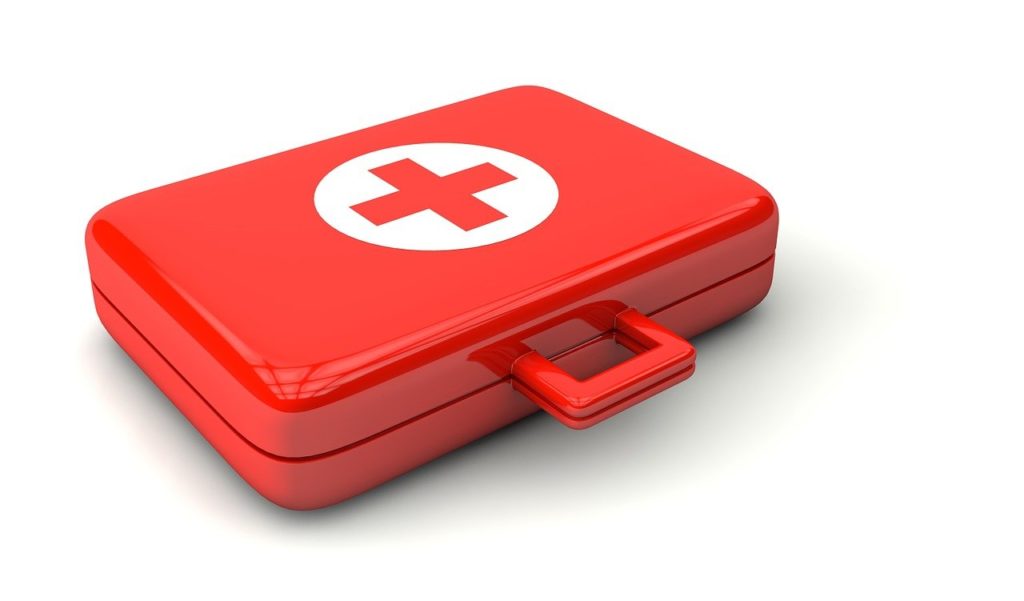
These days, the news is full of emergencies — from foreign entanglements to weather-related catastrophes. At this point, there’s no excuse for getting caught off guard if a disaster strikes in your market. This is particularly true if your radio station is using its “live and local” presence to differentiate it from competitors.
The introduction of new digital tools of communication means that as a radio broadcaster, responding to an emergency isn’t just about using the Emergency Alert System anymore. How will your radio station use its digital tools to serve its community? To figure that our before disaster strikes, ask these questions:
1. What types of emergencies will our radio station respond to?
There’s any number of emergencies that a radio station could respond to, and not all of them may rise to a level that warrants a response. This may depend in part on the size of the community that your radio station serves. A disaster in New York City might need to be bigger than a disaster in Peoria, Illinois.
 At least three types of disasters are foreseeable and deserve advance consideration:
At least three types of disasters are foreseeable and deserve advance consideration:
- Weather Emergencies: Whether it’s a hurricane, wildfire, or flash flood, extreme weather events appear to be increasing in both frequency and intensity. When do these require a response from your radio station?
- Health Emergencies: We’re in the midst of pandemic. Because this an ongoing crisis, most of the day-to-day coverage will be handled by news outlets, not music-driven stations. Are there exceptions to that? If so, identify them ahead of time. For example, it was once the province of local radio stations to report school closings due to snowstorms. What happens if there are school closings due to a COVID-19 outbreak?
- Mass Violence: Mass shootings and various forms of political unrest have plagued numerous places throughout the country recently. Should your radio station respond if this happens in your market?
Your radio station may decide that the appropriate way to respond to an emergency is not during the active situation, but to provide support to the community after the fact. For example, it may choose to raise money for victims of a disaster after it has occurred.
It’s also possible that your radio station’s staff may consider these disasters and decide that it is not the station’s place to respond. However, that is not the same thing as failing to discuss these possibilities in advance. Indecision is, in itself, a decision.
2. How will our radio station use its various digital channels to respond to the emergency?
Once upon a time, radio stations only had one means of responding to an emergency: their airwaves. But today, radio stations have a variety of different channels at their disposal, including websites, email databases, text message databases, mobile apps, social media accounts, and podcasts. Each of these channels has different strengths and weaknesses. How will your station use each in response to an emergency?
Some channels may be better suited to disseminating information quickly, such as email or mobile app notifications. When you use these tools may depend on the disaster and your station’s ability to target people based on their geography or other relevant characteristics.
Other channels are better for spreading information after the incident, such as a podcast that highlights victims in the community or a static webpage that lists helpful resources.
3. Who is responsible for each of these digital channels in an emergency?
When disaster strikes, who is responsible for executing various parts of your radio station’s plan? Does everybody on the staff know how to reach this person? If the person responsible for a particular part of the plan is unavailable — whether they’re a victim of the incident or simply on vacation — has your station designated a backup person?
4. Does everybody on the staff know the plan?
Radio stations are 24/7 endeavors, and disasters can strike at any time — including overnight or on the weekends. During these times, radio stations have few personnel in the building, and those employees usually have less experience with the day-to-day operations. Have these people been properly trained for an emergency? Do they know where to find an emergency plan to guide them?
The proliferation of digital tools in the past few decades means that radio stations have more ways to serve their communities in the face of an emergency. However, it also means that they need to put more thought into their emergency plans. Don’t let your radio station get caught off guard.
- A Simple Digital Treat to Thank Your Radio Listeners This Thanksgiving - November 13, 2023
- Interview Questions When Hiring Your Radio Station’s Next Digital Marketing Manager - November 6, 2023
- A Radio Conversation with ChatGPT: Part 2 – Promotions - October 30, 2023





Seth,
This is really good!
We also want to think about some logistical considerations including the inability to access the facility as we experienced through Covid. Remote access and preparation for facility interruption are considerations. Audio sources from other locations or in the cloud are both worthy of consideration.
Excellent point, Marty! Yes, a number of disasters, such as COVID or hurricanes or wildfires, can make it difficult or impossible for employees to get to the station, so figuring out how to execute duties remotely is very important. Fortunately, the tools to make this possible have become available.